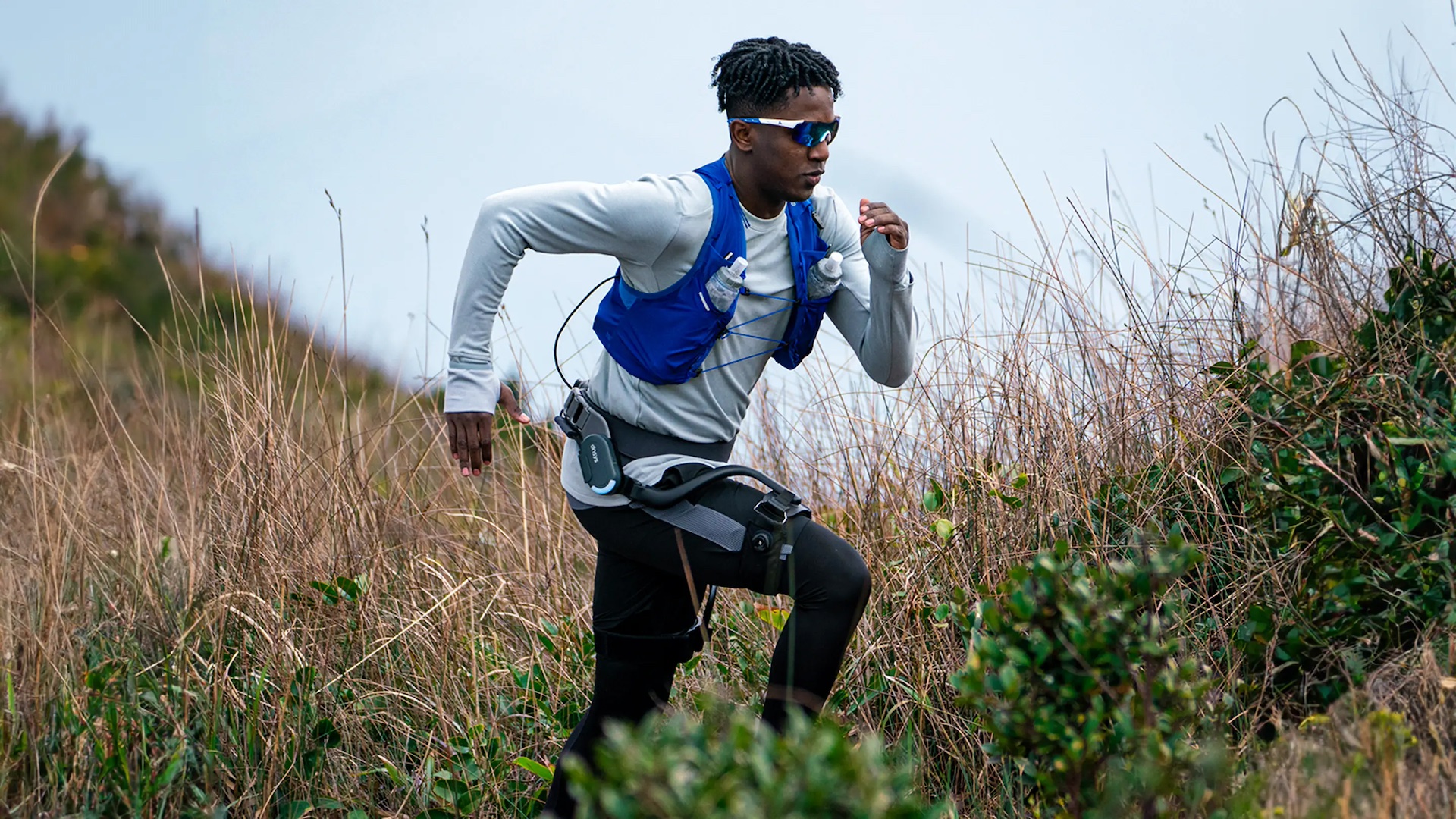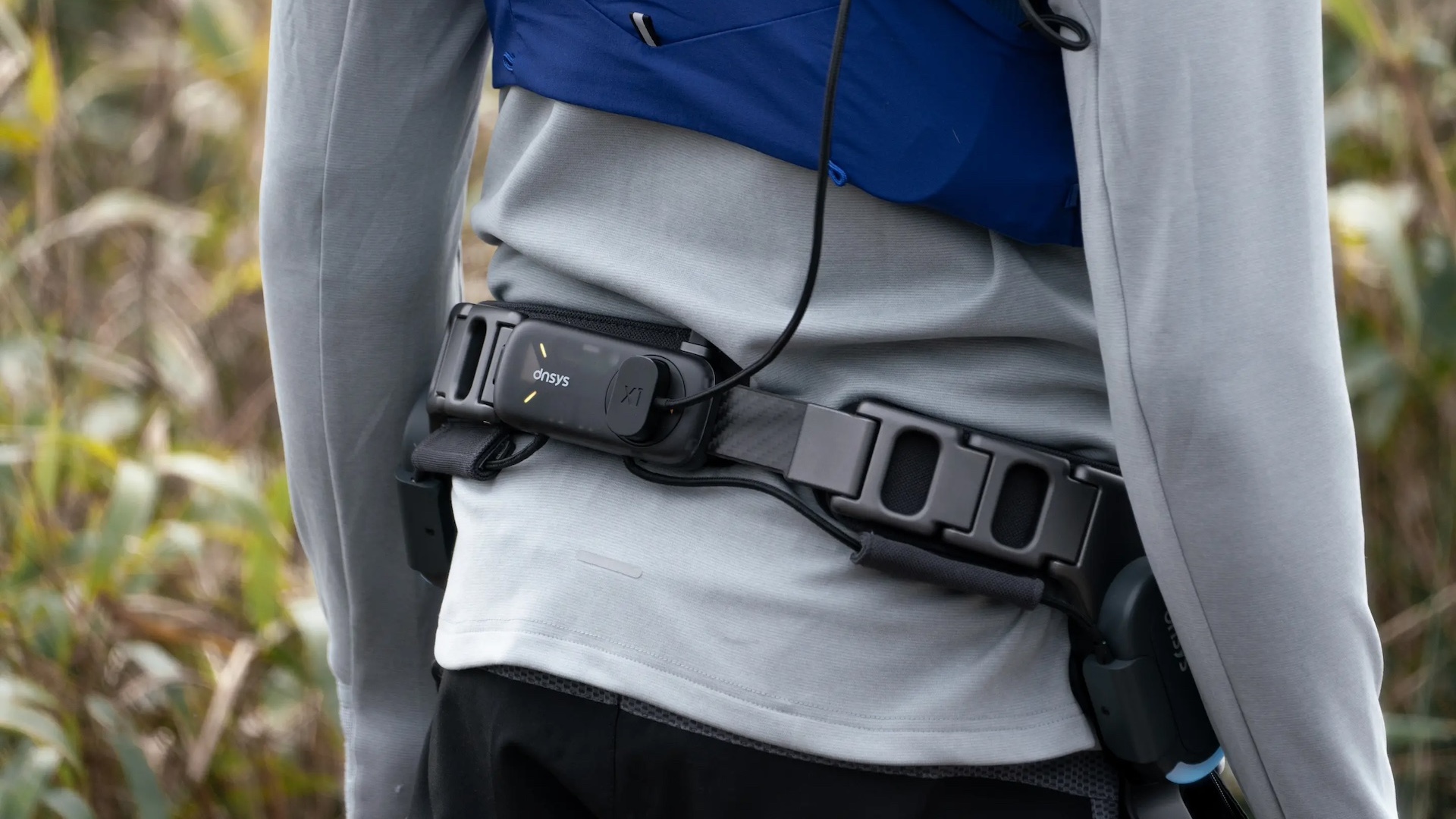
Back at the end of last year, when fitness websites all over the net were making predictions for “The Trends of 2024”, no one seemed to spot e-hiking in their crystal balls.
But power-assisted trekking made possible through high-tech exoskeletons designed to help amateur adventurers go farther faster with less effort, it seems, are on the verge of taking off in a big way. (Not literally, though – no one’s combined them with jet packs… yet.)
We reported on the AI-controlled Hypershell exoskeleton back in January, but now it has a challenger: the X1 from Chinese startup Dnsys, currently crowdfunding its way into mass production. It’s actually an upgrade to a larger-sized professional wearable exoskeleton designed for hospitals by DNSYS, that’s smaller and more comfortable, but still smart and powerful.
Strap the AI-powered X1 to your waist and thighs for an e-upgrade to your anatomy – you’re not quite a cyborg yet, but you’re getting close.
The X1’s 894W motor develops 40Nm (36.88 lb-ft) of torque, which is the equivalent of what you'd find in a mid-range e-bike. That power is sent directly to your legs, through a 10-mode adaptive copilot powered by AI, which, through machine learning, can adapt and anticipate the wearer’s moves, adjusting power output as necessary.

All of which, the company claims, results in a 38kg / 84lbs weight offset (which means you could carry a stuffed hiking backpack and barely notice it) and top speeds of up to 16.7mph / 27km/h, using a boost mode (which presumably drains the battery).
There’s also a mode for running downhill to protect your knees.
The claimed battery life is 30km / 18.6 miles, but the battery is swappable so you can carry a spare if you want to go further.

The X1 weighs 1.9 kg / 4.1 lbs and folds down to the size of a A4 sheet for easy transport, which makes it lighter and more portable than the Hypershell.
The DNSYS X1 Exoskeleton is currently in the crowdfunding process. Early backers (the ones prepared to take a non-AI-assisted leap of faith in this new tech) can get one for $399, which is half the projected eventual price of $798. The first batch of X1s is expected to ship in July 2024.
It all feels a bit sci-fi at the moment, so it’ll be interesting to read the reviews to find out how far these exoskeletons live up to the claims. And if they do, it’ll be equally interesting to find out who they’re selling to in a few years' time.

- The best cheap running shoes 2024: for roads and trails







